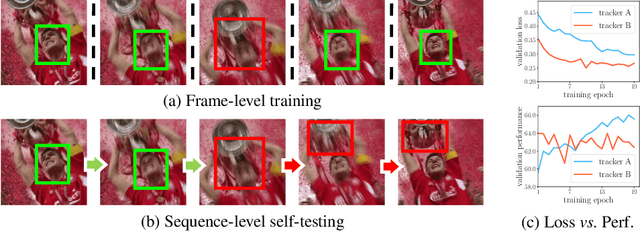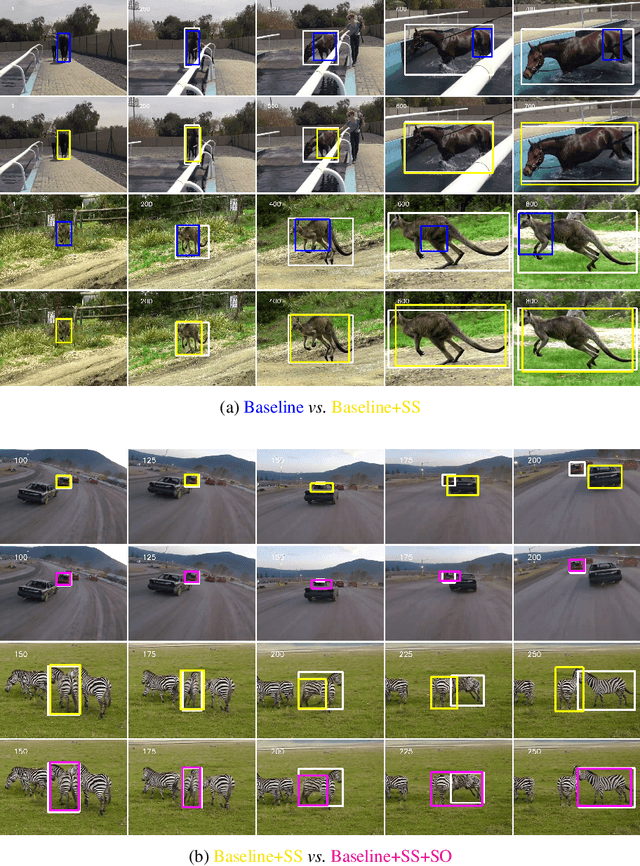Towards Sequence-Level Training for Visual Tracking
Paper and Code
Aug 11, 2022



Despite the extensive adoption of machine learning on the task of visual object tracking, recent learning-based approaches have largely overlooked the fact that visual tracking is a sequence-level task in its nature; they rely heavily on frame-level training, which inevitably induces inconsistency between training and testing in terms of both data distributions and task objectives. This work introduces a sequence-level training strategy for visual tracking based on reinforcement learning and discusses how a sequence-level design of data sampling, learning objectives, and data augmentation can improve the accuracy and robustness of tracking algorithms. Our experiments on standard benchmarks including LaSOT, TrackingNet, and GOT-10k demonstrate that four representative tracking models, SiamRPN++, SiamAttn, TransT, and TrDiMP, consistently improve by incorporating the proposed methods in training without modifying architectures.
 Add to Chrome
Add to Chrome Add to Firefox
Add to Firefox Add to Edge
Add to Edge